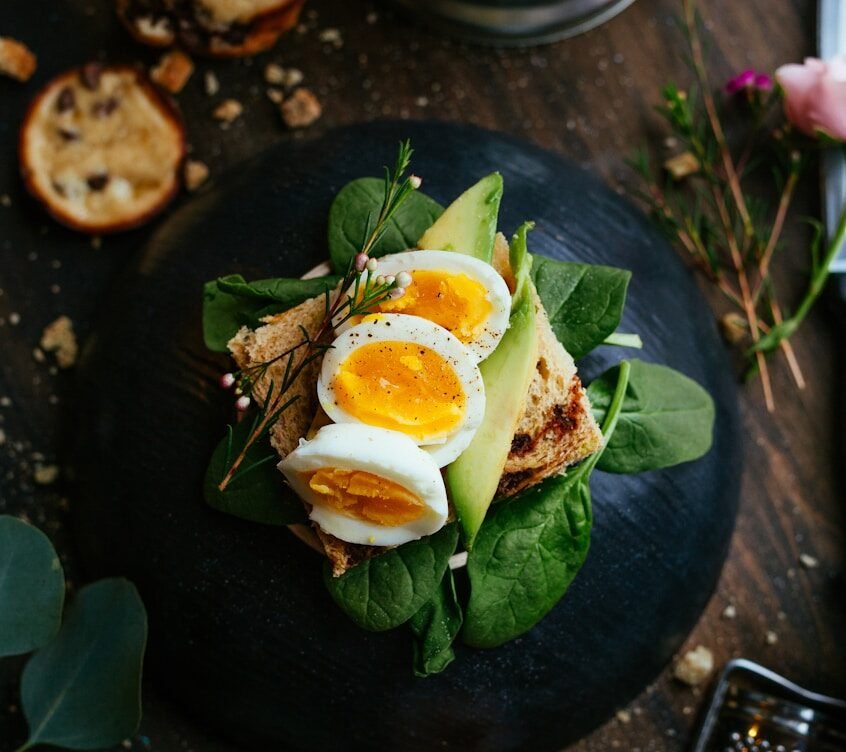
How to Overcome the All-or-Nothing Mindset with Food
How to Overcome the All or Nothing Mindset with Food
Do you ever feel like you’re either totally on track with your eating habits or completely off the rails? One day, you’re meal prepping like a pro, and the next, you’re elbow deep in a bag of chips, thinking, Well, I already messed up might as well keep going.
This is the all or nothing mindset and it’s one of the biggest roadblocks to developing a healthy, balanced relationship with food. The good news? You can break free from it. Let’s dive into how.
What Is the All or Nothing Mindset?
The all or nothing mindset is a black and white way of thinking. It convinces you that if you can’t do something perfectly, you might as well not do it at all.
For example:
- You eat one cookie and decide the whole day is ruined, so you overindulge.
- You miss a workout and think, I’ll just start over next week.
- You label foods as good or bad, leading to guilt and restriction cycles.
Sound familiar? This mindset keeps you stuck in a cycle of extremes deprivation followed by overindulgence.
Why the All or Nothing Approach Doesn’t Work
1. It’s Unrealistic
Nobody eats perfectly 100% of the time and that’s okay! Life is unpredictable. Some days you’ll crave a salad; other days, pizza. Neither choice defines your worth or health.
2. It Leads to Guilt and Shame
When you slip up, the all or nothing mindset makes you feel like a failure. This guilt can trigger emotional eating, creating a vicious cycle.
3. It Sabotages Long Term Success
Extreme diets or rigid rules are hard to maintain. Eventually, they lead to burnout making it harder to stick to healthy habits.
How to Break Free from the All or Nothing Cycle
1. Embrace the 80/20 Rule
Instead of aiming for perfection, try the 80/20 approach:
- 80% of the time, eat nourishing, whole foods.
- 20% of the time, enjoy treats without guilt.
This balance makes healthy eating sustainable not restrictive.
2. Ditch the Good vs. Bad Food Labels
Food isn’t moral. A cupcake isn’t bad, just like kale isn’t good. When we label foods this way, we create unnecessary guilt. Instead, think:
- Nutrient dense foods (fuel your body well).
- Enjoyment foods (fuel your soul).
Both have a place in a balanced diet.
3. Practice Mindful Eating
Instead of eating on autopilot, slow down and savor your food. Ask yourself:
- Am I actually hungry, or am I eating out of habit/boredom?
- How does this food make me feel?
This helps you make intentional choices not emotional ones.
4. Allow Flexibility
Life happens. Maybe you had a stressful day and reached for ice cream. Instead of spiraling, remind yourself:
- One meal (or day) doesn’t define your progress.
- Tomorrow is a fresh start no starting over needed.
5. Focus on Progress, Not Perfection
Did you choose a side salad instead of fries? That’s a win. Drank more water today? Another win. Small changes add up over time.
Real Life Example: Sarah’s Story
Sarah used to follow strict diets until she’d cheat and binge. The cycle left her frustrated. Then, she shifted her mindset:
- She stopped banning foods and allowed treats in moderation.
- She celebrated small wins, like choosing veggies with dinner.
Over time, she lost the guilt and the cravings. Now, she enjoys food without obsession.
Final Thoughts
Breaking the all or nothing mindset isn’t about willpower it’s about compassion. You deserve to enjoy food without guilt or rigid rules.
Ask yourself:
- What’s one small step I can take today toward a healthier mindset?
Remember, progress > perfection.
